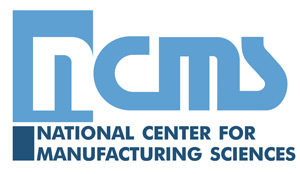NCMS Member Spotlight: Michigan Technological University
Michigan Technological University (MTU) is a public research university in the city of Houghton, Michigan, in the state’s Upper Peninsula. Its colleges welcome 7,000 students from more than 50 countries.
A leader in cybersecurity education and research, MTU is home to the Center for Cybersecurity, specializing in research related to information security and biometrics, privacy protection, trusted software engineering, and security in mobile computing and wireless communications. Faculty research is funded by the National Science Foundation (NSF), Department of Energy (DOE), National Institutes of Health (NIH), Defense Advanced Research Projects Agency (DARPA), Microsoft, Google, and others. The Center also strives to advance the practice and public awareness of cybersecurity through various education and outreach activities. MTU is a participating institution in the NSF CyberCorps: Scholarship for Service program, a nationwide effort to recruit and train the next generation of information technology professionals, industrial control system security professionals, and security managers.
Under a University-wide Advanced Materials and Manufacturing initiative, MTU is redoubling its efforts to improve its longstanding strengths in materials and manufacturing to support existing and future industries. For instance, the Advanced Materials and Manufacturing initiative supports the University’s research in experimental and digital design of advanced materials, like the composite materials in the NASA Space Technologies Research Institute for Ultra-Strong Composites by Computational Design (US-COMP). MTU also established a Manufacturing and Mechanical Engineering Technology department within its College of Engineering.
Advanced materials efforts also include facilitating the next generation of forest biomaterials. Currently, the U.S. Army’s Combat Capabilities Development Command (CCDC) Ground Vehicle Systems Center (GVSC) is working with MTU researchers in their sustainable bioproducts program to identify different lumber products and treatments to use for trailer decking that are superior in resistance to biodeterioration. MTU researchers are also developing new bio-based materials for Ford Motor Company that will make vehicles lighter and displace the use of nonrenewable materials, while maintaining performance criteria and cost requirements.
To learn how you can work directly with Michigan Technological University contact Mark Rudnicki at mrudnick@mtu.edu or visit https://www.mtu.edu/
